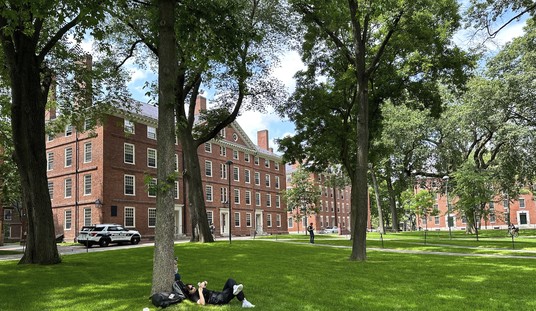Blink, part II? Not only has China decided to send a team of negotiators to Washington to break a vicious cycle on retaliatory tariffs, they have also made the first gesture to reverse the cycle. Through its official ministry, China announced tariff exemptions on sixteen US imports, with more to come soon, the New York Times reports today:
China extended a modest olive branch to President Trump on Wednesday, publishing a short list of products that it will exempt from its retaliatory tariffs on American-made goods.
But the list does not include big-ticket items, like soybeans and other agricultural goods, that the Trump administration would likely consider key to getting a trade deal done with China.
Cancer drugs, lubricants, pesticides, shrimp meal and a number of other products will be excluded from a list of American goods subject to tariffs, China’s Ministry of Finance said in a statement on its website. China first threatened to place tariffs on many of those goods last year, as the trade war began to heat up.
Tariffs that have already been imposed will also be refunded, the ministry said. It added that further exemptions will be announced in the upcoming weeks.
The Washington Post sniffed, calling the gesture a “twig” rather than a full olive branch. One analyst told them that it was about shaping the public-relations battlefield ahead of the negotiations:
China extended an olive twig, rather than a branch, to the United States in their trade war Wednesday, announcing it would exempt 16 American-made products from tariffs as a sign of goodwill ahead of talks scheduled for next month. …
“China wants to claim the moral high ground before the October talks and to send a message of goodwill,” said Yao Xinchao, professor of international trade at the University of International Business and Economics in Beijing. “It’s all about molding public opinion” to portray the United States as the aggressor, Yao added.
Sure, but that and five bucks will get them a café latté at Starbucks in October. No one doubts that Trump is the aggressor in this trade war; he’s the one who slapped tariffs on in the first place. China’s keeping tariffs on ag products in an attempt to force Trump into backing down to protect his political support in rural America, but PR on that point won’t help the PRC until fourteen months or so from now — if it does at all. American farmers also have lots of frustration with China’s sharp limits on US agricultural products, which means farmers have some good reasons to stick with Trump for a while in this fight.
The issue for China is getting tariffs lifted before supply chains for US businesses get relocated permanently. Right now, American companies are riding out the first waves of tariffs with price increases passed along to consumers, but at some point it will just be cheaper to relocate their supply chains to other countries. Most of them won’t end up in the good ol’ USA as Trump would like, but they’ll go to other countries that don’t use trade to conduct espionage and steal intellectual property.
The bottom line from this concession is obvious: China sees the need to resolve this quickly. The exemptions are meant to highlight the risk to the ag sector here too, but they’re first aimed at scaling back the risk to their own priorities when the rest of the US tariffs come into effect. Once the supply chain exodus begins, it won’t be easy to reverse the damage — and both Trump and China know it.







Join the conversation as a VIP Member